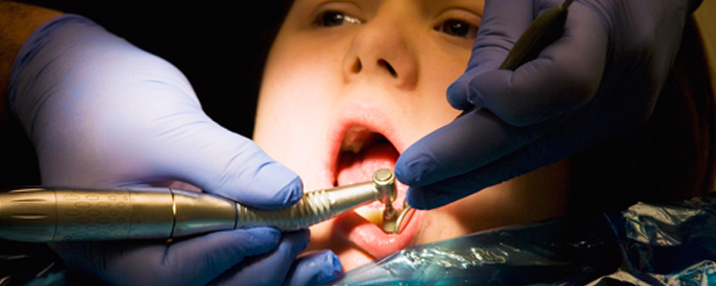
The Issue
Limited access to quality dental care for people with disabilities can have serious consequences, leading not only to oral diseases but chronic conditions including diabetes and heart disease. Unfortunately, significantly smaller percentages of people with disabilities are accessing that care than their counterparts without disabilities. A CDS study on health disparities, made possible by a grant from the Centers for Disease Control and Prevention, showed 41 percent of Delawareans with disabilities reporting either never having seen a dentist or having had their last visit more than a year earlier, compared with just 27 percent of people without disabilities.
Until 2019, Delaware was also one of only three states that did not provide Medicaid dental benefits to adults with disabilities who are more than 21 years old. That’s finally about to change, with Gov. John Carney signing Sen. Bryan Townsend’s bill extending dental coverage to adult Medicaid recipients.
Our Interventions
Myriad factors affect oral health: demographic, including age, race/ethnicity and gender; social and economic, including education, employment, insurance and income; one’s physical environment, including housing, recreational opportunities, transportation, geography and safety; one’s health behaviors, including one’s smoking and drinking habits and fruit and vegetable consumption; access to quality health care in which providers have linguistic and cultural competency; and other factors, including genetics and health literacy.
CDS is aiming to improve access to quality oral health care and services for people with disabilities by cultivating cultural competency related to disability among dental professionals in Delaware. To that end, the Center developed disability cultural competency trainings for dental professionals based on best practices and two surveys: one of people with disabilities, the other of dentists.
The Survey – Patients
In 2016, CDS developed and conducted a dental care survey to determine the oral health needs of Delawareans with disabilities. Some 173 adults with disabilities and 113 parents of individuals ages 6 to 49 with disabilities participated in the survey. Parents of children with disabilities completed the surveys to relate their experience with access to dental care for their children with disabilities. Parents of adults with disabilities participated in cases where an adult child with a disability could not fill out the survey because of cognitive or functional limitations.
The findings of the survey guided the development of disability cultural competency trainings for dental professionals in Delaware, which aim to help them become more sensitive to the needs and preferences of patients with disabilities.
The Survey – Dentists
In collaboration with the Delaware State Dental Society (DSDS), CDS in 2016 conducted a survey of dentists to determine their current capacity and needs regarding patients with disabilities. The survey reached out to 351 dentists who had active Delaware licenses and provided dental care to patients and who could be accessed through DSDS. Some 171 dentists participated in the survey through an electronic or paper format.
The dentists reported patient behavior as being the greatest barrier to providing dental care to patients with disabilities. They also reported it is most important for dental professionals to know about behavior management. The findings of the dentist survey, coupled with those of the patient survey, guided the development of disability cultural competency trainings.
The Trainings
A CDS analysis of its dental survey data suggested an effective way to promote oral health equity in Delaware would be to offer the dental workforce training in individualized care and disability awareness. Supported by a grant from the U.S. Health Resources and Services Administration (HRSA), CDS and the Delaware Bureau of Oral Health and Dental Services partnered to develop and host four such training sessions, which took place across the state between January 2018 and June 2018.
Accessible, open-captioned videos of each session can be found here.
The trainings were presented by three health care professionals who specialize in supporting patients with disabilities. They covered four main topics: a summary of significant findings from the oral health surveys administered to dentists and people with disabilities; general considerations for all dental professionals to accommodate people with disabilities; specific strategies for planning and administering care; and disability awareness and sensitivity.
The dental staff who attended these sessions completed pre- and post-training surveys. Access the evaluation of their responses here to learn how they say the experience changed them.
For further information about the oral health project, contact Beth Mineo at mineo@udel.edu.
